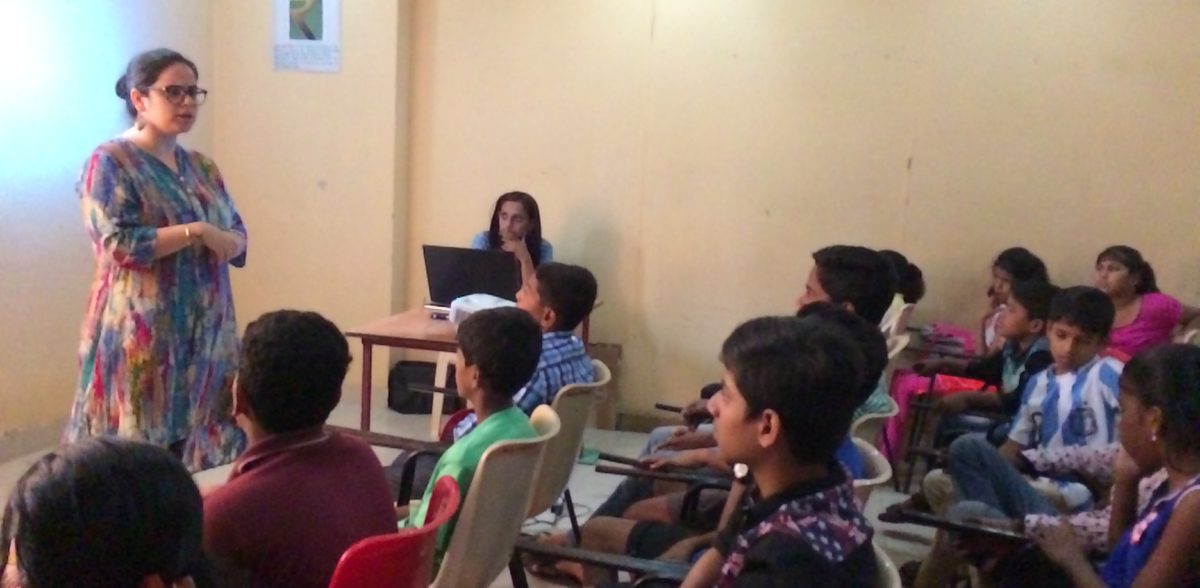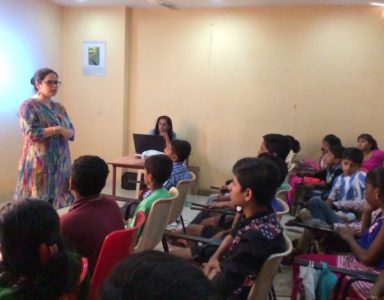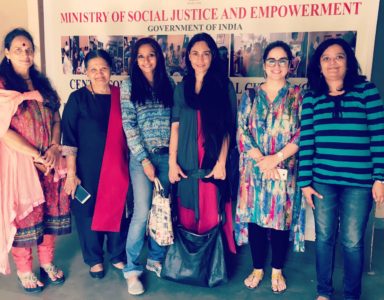
Sumati is a Program and Outreach Officer with Safecity. She is responsible for engaging with the communities and establishing and maintaining partnerships with NGOs and colleges, conducting workshops with colleges and raising awareness regarding sexual violence and providing input for developing appropriate training programmes. She has an M.A. in Women Centered Social Work from Tata Institute of Social Sciences, and a Bachelors in Economics from Delhi University. Her past work has focused on the effects of conflict on access and mobility of women, and her thesis looked at the experiences of Kashmiri women with conflict.
Awareness Workshop for Children associated with CSSC
Safecity conducted an orientation and awareness workshop on the Protection of Children from Sexual Offences (POCSO) Act for 50 children associated with the CDK (Child Development Khajana) Project at the Centre for the Study of Social Change (CSSC).
We began with the concept of trusted adults in the children’s families or schools. Most of the children present said that their parents were the adults that they trusted. Apart from that, there were children who said that they trusted their grandparents and teachers in schools. These trusted adults in their respective families and schools were established as individuals whom they could share their secrets with.
We showed a short 10 minute animated film based on a young girl Komal who is sexually abused by her father’s friend. After showing the film, we had an interactive session where we discussed the secrets that Komal kept from her mother. We discussed about the concepts of good secrets and bad secrets with the children. We displayed some illustrations of secrets where the children were given the chance to judge whether or not the secret in the illustration was good or bad.
After discussing these illustrations, we talked about the four places that nobody should touch without the other’s permission. We talked about the private parts by using hand gestures,visuals and rhymes to make it easier for the children to remember.
We then narrated a story of a girl named Deepa, a young girl aged 10 years who is shown pornographic content by her neighbour who looks after her after she returns from her school. This story was narrated in order to equip them with the solutions if ever something of this nature was to happen to them or to someone they knew. We introduced the concept of ‘No-Go-Tell’ to the children. We also made them aware of the helpline contact numbers for children and made them memorize the numbers just in case they needed help if they weren’t comfortable sharing the details with someone they knew.
Towards the end of the session as a demonstration of the term ‘personal’ or ‘comfortable’ space, we spread our arms out and took a full circle with our arms as the radius and made the children do the same. This, we told them was their personal space which shouldn’t be invaded without their consent.
These children are a part of a brilliant project in CSSC wherein they open their bank accounts, learn financial management etc. They were extremely enthusiastic and interactive. Through discussions later, some children said that a few of the topics we had spoken about had been covered in their schools while the others said that the girls were taken in a separate room and were made aware about Child Sexual Abuse.
While it’s heartening to see that some schools are taking this initiative to talk to their students about these issues, there are still loopholes such as boys being left out of awareness programs because only girls are being spoken to. Child Sexual Abuse is a reality and we, at Safecity, are tying to bust myths such as child sexual abuse only happens with girls. We, as a sexual society, need to come together and take initiatives where we can give our young children a voice and sensitize them about such issues regardless of their gender.






